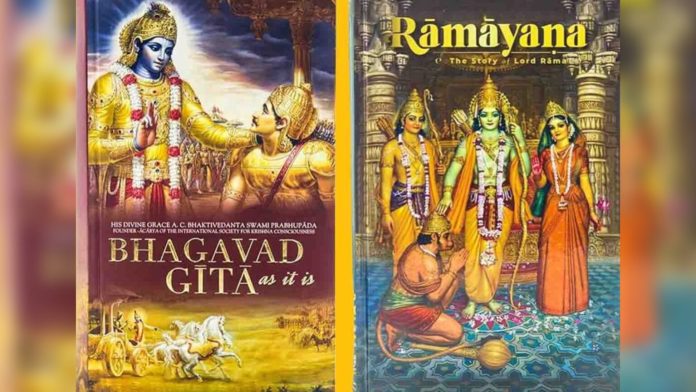In a move stirring widespread controversy, the Uttarakhand government has officially mandated the inclusion of the Bhagavad Gita and Ramayana in school curricula across the state. The order, issued under the directive of Chief Minister Pushkar Singh Dhami, has triggered criticism from educationists, teachers’ associations, and minority communities, who view it as an assault on the secular fabric of the nation, reported the Hindu.
Mukul Mehta, Director of Education, stated that all Chief Education Officers have been instructed to implement daily recitation of a shloka during morning assemblies in government and private schools. “A new shloka will be posted on notice boards each week, and students are expected to memorise and discuss its meaning,” Mehta added.
However, this directive has been met with backlash. The President of the Teachers’ Association emphasized that enforcing the recitation of religious texts violates constitutional principles and compromises the country’s commitment to secularism.
Members of the Muslim community in Uttarakhand have raised serious concerns, arguing that if the Gita and Ramayana are to be introduced in schools, then the Quran and Bible must also be included to ensure religious inclusivity. Local social worker Mohammad Arshad, speaking to media, asked, “This is a secular nation. If you want to teach one religion, why not all?”
Activists echoed this sentiment, accusing the government of religious bias and questioning its priorities amid ongoing marginalisation of minority groups. Many see this move as another step toward institutionalizing Hindutva ideology under the guise of “cultural education.”
Muslim organizations and rights activists have demanded the immediate withdrawal of the order, warning that if it is not revoked, peaceful statewide protests will be launched to oppose the imposition of religious content in public education.




